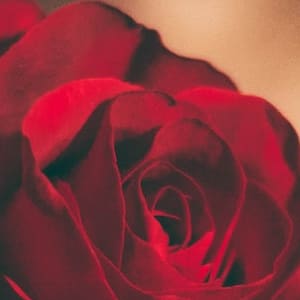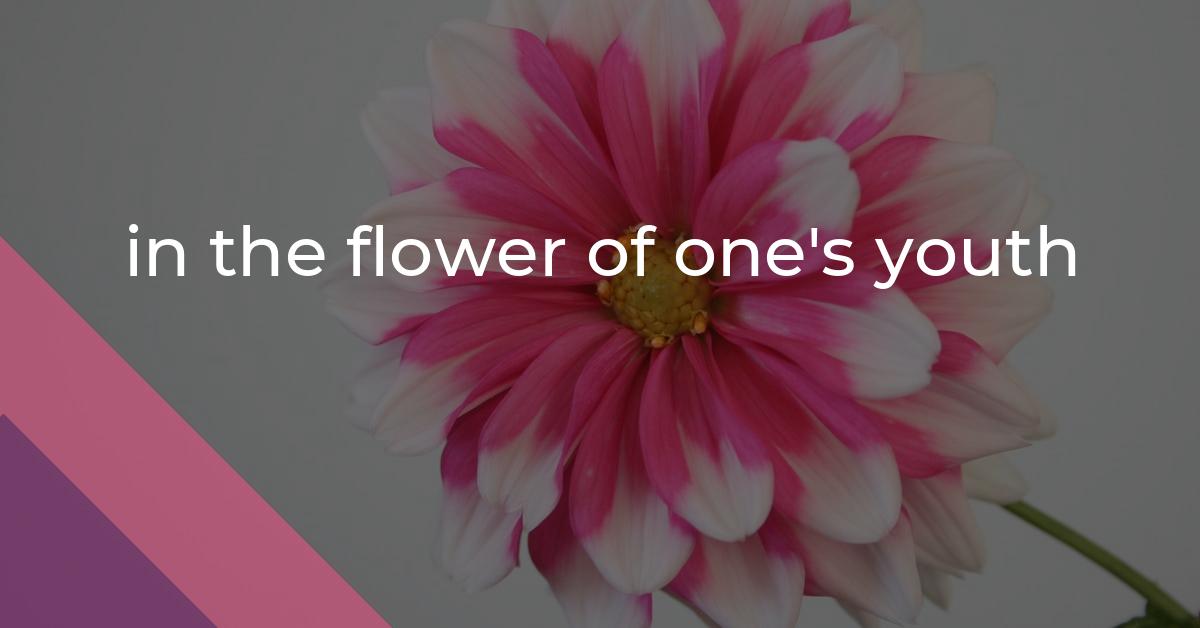in the flower of one’s youth: Idiom Meaning and Origin
What does ‘in the flower of one's youth’ mean?
The idiom "in the flower of one's youth" refers to the period of time when someone is young and at their peak of physical and mental abilities. It implies a sense of beauty, vitality, and freshness commonly associated with flowers.

Idiom Explorer
The idiom "in shape" means to be physically fit and healthy, often referring to a person's overall physical condition and well-being.
The idiom "in one's cups" refers to being drunk or intoxicated. It implies that someone has consumed so much alcohol that they are influenced or affected by it. The phrase is often used to describe someone who is behaving differently or experiencing the effects of excessive drinking.
The idiom "in all one's glory" means to be seen or presented in one's most impressive and grandiose state, showcasing all of one's achievements and qualities.
The idiom "in all one's born days" expresses the idea of someone's entire lifetime or existence. It emphasizes the length of time a person has lived and implies surprise or disbelief at a particular event or experience.
The idiom "have one's moments" means to have periods of time where someone's performance or behavior is impressive or notable, but it is not consistent or sustained.
The idiom "grow up" means to mature or become an adult, both physically and emotionally. It implies the development of responsible behavior and leaving behind childish characteristics and attitudes.
The idiom "golden years" refers to the time in a person's life when they are retired and able to enjoy leisure activities, usually associated with financial security and freedom from work obligations.
The idiom "golden age" refers to a period in history that is considered to be the peak or prime of a particular civilization, industry, or art form.
Youth's Exuberant Aura
The idiom in the flower of one's youth is a vibrant expression used to describe individuals who are in the prime of their lives, typically during their youth. This idiom draws inspiration from the imagery of a flower in full bloom, symbolizing the vitality and beauty associated with youth.
The usage of this idiom can be traced back to the 16th century, where it was employed by renowned authors and poets like William Shakespeare and John Milton. These literary references highlight the idiom's well-established and understood nature during that period.
The idiom focuses on individuals who are at the peak of their physical and mental abilities, highlighting their energy, vigor, and potential. It portrays youth as a period characterized by exceptional qualities and achievements.
For instance, imagine a young athlete who blossoms out on the soccer field, displaying extraordinary talent and skill. Their agility, speed, and strategic thinking make them stand out among their peers. This idiom perfectly encapsulates their remarkable abilities during this stage of their life.
In addition, consider an ambitious entrepreneur who, like the flower of the flock, stands out among their competitors. This individual's innovative ideas and determination allow them to flourish in the business world, making significant strides in their career while still young. The idiom aptly captures their achievements and distinguishes them from others.
It is essential to note that the idiom portrays youth in a positive light, focusing on its advantages and the potential it holds. It tends to omit any challenges or struggles that may be associated with this stage of life. Consequently, it presents a somewhat romanticized view of youth.
The fountain of youth is also a related idiom that adds depth to the concept of being in the flower of one's youth. While the latter primarily emphasizes the prime of one's life, the former suggests a mythical source of eternal youth and vitality. The fountain of youth is often associated with legends and folklore, symbolizing the desire for perpetual youth and immortality.
The idiom in the flower of one's youth beautifully captures the essence of youth as a time of vitality, beauty, and potential. Its origins may be uncertain, but it has been used for centuries to describe individuals at the pinnacle of their physical and mental capabilities. It portrays youth in a positive light, highlighting exceptional achievements while downplaying any challenges that may be present. Additionally, related idioms like "blossom out," "flower of the flock," and "fountain of youth" further enrich the understanding of this concept and its implications. Ultimately, this idiom leaves room for interpretation, encouraging further exploration and examination of the multifaceted nature of youth.
Example usage
Examples:
1. She achieved great success in the flower of her youth, becoming a world-renowned pianist by the age of 20.
2. He was tragically taken from us in the flower of his youth, leaving behind a promising future.
3. They traveled the world together in the flower of their youth, creating unforgettable memories and experiences.
More "Age" idioms



